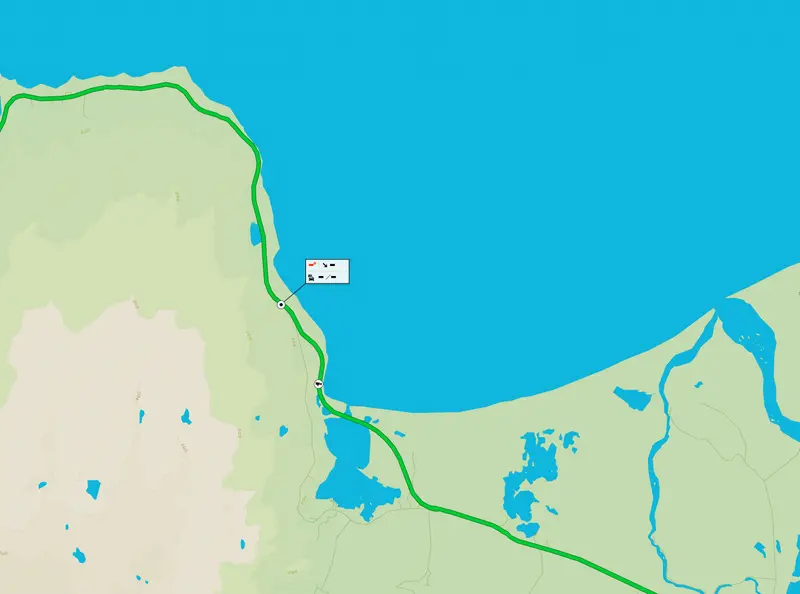Environmental protection
In the IRCA’s environmental policy, strong emphasis is placed on the institution’s commitment to reducing the environmental footprint of its operations. Central to this policy is the adoption and promotion of principles associated with a circular economy, which seeks to minimise waste, extend the lifecycle of resources, and ensure sustainable use of materials across all activities. By integrating these practices into daily operations, procurement processes, and project planning, the IRCA aims not only to lessen its immediate environmental impact but also to contribute to broader, long-term sustainability goals. This approach ensures that environmental considerations are systematically embedded in decision-making and operational processes throughout the institution.
Environmental protection
Environmental policy
In the IRCA’s environmental policy, strong emphasis is placed on the institution’s overarching goal of reducing the environmental footprint of all its operations. A central component of this commitment is the adoption and practical application of a circular economy, which focuses on minimising waste, maximising resource efficiency, and ensuring the sustainable use of materials throughout all stages of planning, construction, and operation. By integrating circular economy principles, the IRCA strives to contribute to long-term environmental sustainability while carrying out its work.
In the course of its operations, the IRCA takes deliberate measures to limit disturbance to natural ecosystems. When projects are under development, careful consideration is given to protecting untouched wilderness areas, preserving sensitive ecosystems, safeguarding landscape units, and conserving both natural and cultural heritage sites. These measures are designed to ensure that the environmental impact of development is minimised and that the ecological and cultural value of the affected areas is maintained for future generations.
Moreover, completed projects are expected to blend harmoniously with the surrounding landscape, ensuring minimal visual disruption and maintaining the natural character of the environment. The methods and techniques employed during operations are carefully selected to meet the highest standards of environmental management, safety, and sustainability, in accordance with all relevant guidelines and regulations. By upholding these standards, the IRCA ensures that its work not only fulfils its functional objectives but also aligns with its commitment to environmental stewardship, responsible resource management, and the protection of the natural and cultural heritage of the areas in which it operates.
Biological diversity
During project construction and servicing, the IRCA is tasked with limiting the dispersal of aggressive flora, and developing mitigative measures when a project is situated in a delicate ecosystem.
The mapping and monitoring of aggressive flora is important, as is the development of mitigative measures during project construction. The mapping and observation of ecosystems specifically designated as delicate is also considered especially important.
The IRCA has assisted in wetland reclamation in various places around the country, in order to make up for the loss and disturbance of wetlands due to road construction. One example of an IRCA project engaged in large-scale research on observation and reclamation is the revamped Vestfjarðarvegur (information only available in Icelandic).
Conservation of cultural heritage and landscape
During a project’s construction, special care should be taken towards limiting all disturbance of landscape units, as well as natural and cultural heritage sites. When designing and constructing a project, the chief goal should be that the finished project blends in sufficiently with the landscape, and the methods of the operation should fulfil all relevant standards. Furthermore, the IRCA seeks to develop an enjoyable experience for travellers and seafarers through excellent design with a focus on aesthetics in construction, and through the conservation of a given place’s cultural and natural environments.
Included in the IRCA’s environmental policy is that, during early development, design, construction and operation of transport infrastructure, the IRCA seeks to conserve untouched environments, ecosystems, landscape units, as well as natural and cultural heritage sites.
In the course of operation, the IRCA seeks to limit ecosystem disturbance. Furthermore, the finished project is to blend in sufficiently with the landscape, and the methods of the operation should fulfil all relevant standards.
One example of a project where the IRCA worked closely with beneficiaries towards the conservation of a project location’s cultural heritage, landscape and native flora is the construction area by Þingvallarvegur.








